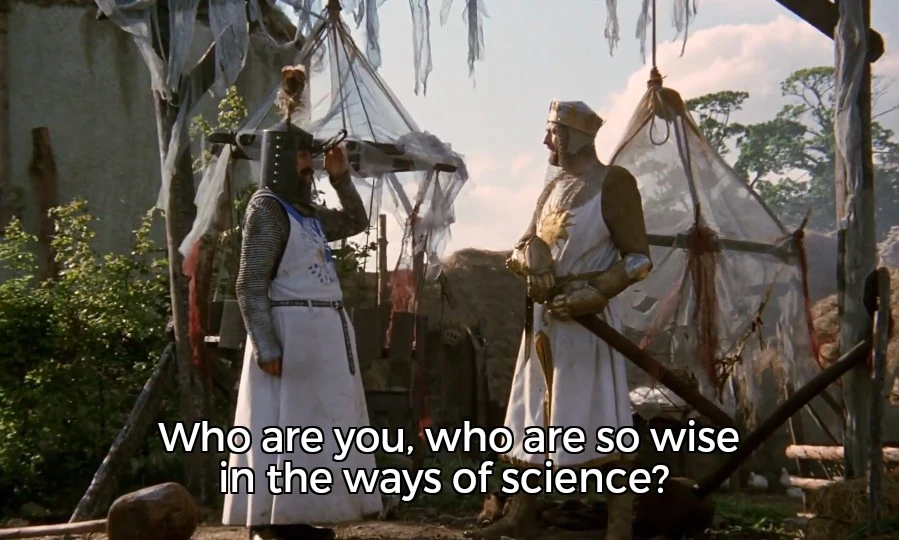Lmao why is almost everyone talking about the law? Morals can exist regardless of the law
That’s a poignant philosophical observation:

YES, someone says it. I’m so tired of people bringing up laws when I’m arguing over morals. Let morals change your laws, not the other way around
Whose morals?
I’m curious, if not from the people discussing, what kind of answer were you expecting?
It’s just somewhat surprising to me to see this sentiment so highly upvoted on a discussion board that I typically associate with a younger, perhaps more atheist crowd. “Let morals change our laws” is an argument my boomer, Trumper, anti-lgbt parents make. No thanks.
“Morality” is highly subjective. Not only does every person have their own unique set of morals, most people probably wouldn’t even share the same definition for “morality”. As I see it, it seems too many of our problems are directly attributable to people who believe their own morals are more important than the laws that apply to them.
I would use the word “ethics” instead. Because even though there are many sets of ethics out there, they are usually more well defined and have reasoning behind them. Their justification can’t end with “because a book told me so”.
Maybe it’s just a tomato/tomato situation, but I think the distinction is important. Obviously, I agree that laws exist to be a reflection of certain “values” a society holds, but at the end of the day, the law is the only thing that is well defined (or is intended to be).
So when discussing something like the title of this post, we could talk all day about what we personally believe the answer is, but the legality really is the only objective answer here.
So when discussing something like the title of this post, we could talk all day about what we personally believe the answer is, but the legality really is the only objective answer here.
I agree, we can enjoy a long insightful conversation if we talk about morals… Why do you sound like that shouldn’t be the default?
Edit: wait, how in the duck do you expect a single monolithic legal answer in a question that did not provide a legal jurisdiction?
I never said I expect only one response to OP, this is an asklemmy thread after all, there is no “correct” answer 😀. It is interesting to hear about both the legislation and the personal beliefs amongst everyone here from all over the world, and I welcome that discussion.
But my response was specifically directed at the person who said, “I’m so tired of people bringing up laws”, when laws are really the only objective answer here to be had. I’m fine with everyone sharing their personal beliefs, that leads to interesting discussion, but in general I disagree with the sentiment of “let morals change your laws”. Your own morality the thing you should be most critical of when it comes to changing laws. We should have a discussion to find an ethical basis we can agree on as a society, and use that to drive change to our laws. But we should strive to remove our personal morality from the equation as much as possible.
Morals changing laws is often a justification for authoritarianism or excluding “immoral” people from basic protections.
Laws and morals shouldn’t be the same. I’d prefer most people keep their morals out of laws.
Morals changing the laws is exactly how we’re ending up with the right wing BS that is American politics
Yes, this gets covered in basic mandatory reporting training. The issue with intoxication is generally the power asymmetry. If there is no asymmetry, there’s less of a problem. It isn’t a hard and fast rule though. If someone says or implies they don’t want to fuck when sober, and you both get drunk and fuck, that’s probably not great. Likewise, someone taking advantage of a body mass asymmetry to remain relatively more sober while consuming the same amount of alcohol is definitely still rape.
Basically, if only one person is drunk, there is a strong presumption of assault. If both people are drunk, there is no such presumption, and you’d generally defer to the nature of their relationship outsode of the drinking. So two complete strangers getting sloshed and fucking is typically safe. Two otherwise platonic friends doing the same thing is more of a grey area and you better be sure you are not misreading the situation. You getting drunk with a friend in the hopes they will make a poor decision they wouldn’t make while sober is rape.
These rules apply in which country?
What I don’t see discussed already here is that it depends on the relationship. Both of you being drunk is not the right time to decide for the first time that you want to do it, but if you’ve already made that decision and now happen to be drunk, whatever.
Consent and being drunk is not about a power imbalance, or at least not completely. It is about both parties’ capabilities to consider the consequences of their actions. Will one or both regret what they’ve done later? How would they tell, if they were either of them drunk?
Regretting a decision has nothing to do with consent. Just because you consented to something does not mean you won’t regret it or vice versa.
It’s kinda murky territory, but I believe the general consensus is that once you get blackout drunk or pass out levels of drunk or noncommunicating, you can’t consent anymore.
This means it’ll happen faster to women since they are generally smaller which I think a lot of people don’t realize. Eg. “We both had 4 beers and I was fine!” Nah she isn’t the same as you.
As far as legality is concerned, you need two key things to be able to give consent: Knowledge of what you’re consenting to, and then the actual consent.
The second part is very straightforward, so I’ll touch on that first. Because if someone is unconscious, they obviously can’t consent. It’s an easy argument to satisfy; If they didn’t/couldn’t say it was okay, then it wasn’t okay. Easy. They were passed out? Then they couldn’t consent.
The big reason it can get murky is because that communication can happen nonverbally, via body language and context. Maybe someone misinterprets a signal, and goes in for a kiss that the other person doesn’t want. That’s a tame example, but it gets the point across with how the actual communication could get murky. But again, this is certainly the most straightforward part of consent. Can they say yes? Did they say yes? Cool.
The tricky part is that first one: Knowledge of what they’re consenting to. It gets tricky because the line gets blurry when alcohol is involved. The most straightforward times this gets violated are when one partner is surprised by something. “Stealthing” (taking a condom off without the other person’s knowledge) is rape because it violates this first part of consent. They weren’t given sufficient knowledge of what they were consenting to, (because they believed their partner was wearing a condom) so it isn’t consensual. Everyone involved needs to be able to comprehend what is happening when it’s happening. You can be blackout drunk but still able to understand what is happening in the moment. Being blackout just means the “record” part of your brain was turned off. But you can still be awake and aware of your surroundings, even if you won’t remember any of it once you sober up.
This is why lots of rape cases get thrown out. The victim was enthusiastically consenting at the time, but doesn’t remember it because they were blacked out. They wake up the next morning and are horrified about what they participated in. If they were blackout, they may not even remember consenting at all. But if they were capable of understanding things at the time that it was happening then the first part is still (as far as the law is concerned) satisfied. The law doesn’t care if you regret it after the fact, or if you can’t remember consenting, or if you only consented because your inhibitions were lowered and you had beer goggles on. All the accused rapist has to do is prove that you were able to understand what was happening, (or at least convince the jury that you were) and that you went along with it with that knowledge. If they’re able to do that, (and if the jury isn’t biased) then they’ll be acquitted. Because as far as the law is concerned, if those two parts of consent are fulfilled, then you were able to consent.
The courts do take a lot of factors into consideration, but generally speaking, voluntary intoxication has a high threshold to meet. The victim usually needs to be passed out (or at least so drunk that they’re not capable of communicating their consent). Because the courts will go “well they knew what they were doing until they passed out, because they knew they were intoxicated.” Involuntary intoxication (like having a drink spiked) is typically a much much lower threshold. If a victim was drugged, they’ll have a much easier time proving non-consent, because courts will tend to go “well they didn’t intend to get intoxicated, so any consent they gave while intoxicated should be considered coerced.”
But if you consider that both are drunk, it gets even more complicated. Sure, you can’t rely on the consent of a drunk person. But if you are also drunk, you can’t even rely on your own judgement of the situation… and you likely are not aware of that.
Well again, the only things that matter are the lack of surprises, the ability of both parties to comprehend what is happening, and the consent. It doesn’t matter if you regret the decisions later. Maybe you wake up and go “I never would’ve done that while sober” but that doesn’t retroactively remove your informed consent. You were capable of understanding it at the time, and you went along with it. That’s what matters. They don’t care about your impaired judgement for the situation, as long as you were capable of understanding what was happening.
How drunk is too drunk?
This kind of situation is something that is extremely fuzzy to define, but has some easy implications for how people should be taught to handle the situation.
If you are drinking, know your judgement is impacted. The same applies for others.
If you know someone is not normally interested in you, assume they will still feel the same when they sober up and don’t try anything while they are drunk.
If you are interested in a stranger while drunk, know your judgement is impacted and you are likely to misread cues so error on the side of caution. Better to miss an opportunity than to completely misread their intentions or miss signs that they are past their ability to make decisions.
Past that, aim for obvious signs of consent because once again, you are drunk and will probably misread their nonverbal cues.
To be honest the best outcomes came from listening to good friends who recommended for or against hooking up with someone because they were not the one looking to get some.
If your drinking you tend to forget your judgement is impacted.
I don’t forget that it is impacted, but it is hard to tell how impacted it is.
Assuming they are similar levels of drunk, one party didn’t get them into that situation specifically do that without the other one’s knowledge, and they’re both sloppily initiating drunken horny on each other, then sure. But really it would be worthwhile assessing the situation afterwards to see what actual harm/trauma has happened. I say this as someone who has drunkenly initiated things and its either violated a boundary or I’ve regretted it later.
I think the idea of having consent as this hard line, unforgiveable sin thing is probably not a good way of viewing consent. It’s kinda puritanical. (e.g. most jobs are non-consensual in a puritanical sense, I would not be doing most jobs I’ve had unless I needed cash for rent/food, but we also learn to forgive people who help us get jobs we wind up hating. Also consent isn’t just for sex)
The latest episode of the podcast Multiamory, which is focused on polyamory stuff but this episode was more general, actually has a broad discussion on this if you want to check it out. I disagree with a couple of points here and there, but whatever.
That does sound like an interesting discussion actually
I like this take. Thanks for elaborating.
deleted by creator
That’s not necessarily true though. A person who really wants to get with someone who has turned them down, goes over when they are vulnerable, knowing they are vulnerable, and plies them with alcohol - that’s still potentially assault. If both parties are drunk, the presumption is not explicitly rape like it would be if there was such a power imbalance, but it isn’t a free pass either.
If your sex partner is intoxicated, it will always raise the stakes, regardless of whether you are also intoxicated. It means you need to be very sure this person wants to sleep with you.
I think you’re misunderstanding what I meant but that may be my fault.
Would “Two people of equal drunkness can do whatever under the same terms and conditions as two non-drunk people” be better?
deleted by creator
Why do you think that? I do not see any connection between my comment and you conclusion here.
deleted by creator
deleted by creator
deleted by creator
deleted by creator
deleted by creator
deleted by creator
So since I don’t drink I can’t hookup with drunk girls?
Exactly, you can’t. That would be rape.
deleted by creator
No.
Being able to consent means being able to both understand what you’re consenting to and being able to communicate that you consent to it.
A drunk person can’t understand what they’re consenting to and, after certain levels of drunkenness, can’t communicate their consent either. Therefore they can’t consent. You, being sober, should know this and therefore shouldn’t take advantage of them. If you do take advantage of them, then that makes you a rapist.
As the other commenter pointed out, I hope the women around you know you’re not a safe person to be around.
deleted by creator
You do realize that there are different levels of drunkenness right
Literally re-read what I said.
So a person who drank one beer can not consent anymore, is that what you are telling me?
If the person can’t handle the beer then it cannot consent. If you’re sober and they’re drunk then you are raping them.
There’s 2 questions that must be asked in these situation
-
did she consent to it before being drunk?
-
is she capable of still understanding what’s going on and guve/remove consent?
If the answer to any one of these is “no”, “wellll”, “idk”, “I think/guess so”, or anything other than a very clear yes then she can’t consent. And when in doubt, assume the answer is no.
-
deleted by creator
deleted by creator
deleted by creator
I’m very thoughtful and delicate regarding consent
Given what you’ve said so far I’m gonna call bullshit on that.
So since I don’t drink I can’t hookup with drunk girls?
No. Also I hope the women you know are aware that you are not a safe person to be around.
deleted by creator
deleted by creator
deleted by creator
How did you become all-knowing?
Probably from reading the part in your comment which says:
So since I don’t drink I can’t hookup with drunk girls? Sounds like BS to me.
deleted by creator
Yeah, its seems in Canada law it depends on the circumstances. You can’t consent if you’re unconscious or if you’ve been drugged, or coerced… and, yeah, those seem to me like obvious cases of rape. But going by this article, two people being drunk doesn’t automatically negate consent so long as they’re both aware and willing.
Article Summary:
Consent is defined in the Criminal Code as “voluntary agreement of the complainant to engage in the sexual activity in question.” Janine Benedet, a law professor at the University of British Columbia’s Peter A. Allard School of Law, puts it this way: “The question is whether the person in their own mind wanted this sexual activity to take place.” According to the code, no consent is obtained when the agreement comes from someone other than the complainant, the person is incapable of consenting or is induced by the accused abusing a position of trust, power or authority. Consent also does not exist if someone “expresses, by words or conduct, a lack of agreement to engage in the activity” or if the complainant, who previously consented, expresses “a lack of agreement to continue to engage in the activity.”
In that decision, the court wrote that "when the complainant loses consciousness, she loses the ability to either oppose or consent to the sexual activity that occurs. “Finding that such a person is consenting would effectively negate the right of the complainant to change her mind at any point in the sexual encounter.”
The code says there is no consent where someone is incapable of consenting. Various factors affect an individual’s capacity to voluntarily agree to sexual activity, according to Canadian law. One factor courts sometimes consider is whether the accused was in a position of authority, said Benedet. “There are provisions in the Criminal Code that talk about consent being vitiated when someone is in a position of trust or authority,” she said. Despite the idea of a position of trust impairing the ability for there to be consent, Benedet said there continues to be debate in the case law about “what kind of relationship really puts you in a position of authority.”
Intoxication is also considered a factor that affects a complainant’s capacity to consent to sexual activity. But in practice, Benedet said, the threshold of intoxication at which point someone is deemed incapable of consent varies depending on the circumstances. Where a complainant becomes intoxicated involuntarily, for instance, by being drugged, “courts [tend] to be very generous in terms of what level of intoxication would be sufficient to amount to incapacity.” If a complainant consumes drugs or alcohol by choice, courts have “a very high threshold for incapacity, much higher than they would have applied in those involuntary intoxication cases.”
deleted by creator
I hope so!
Of course, it’s extremely common too lol
My spouse and I have drunk sex.
If I’m at a party and I’ve been with a person for a few months, have already had sex before, and already talked about doing it after I also see no issue.
If you are going to a party that is explicitly for sex and drugs, you should expect to have drunk sex with strangers. You know know this is going to happen before becoming intoxicated.
If you have talked about maybe making the attempt to date show up so a party on E and corner someone in a walk in pantry, that isn’t fine.
But what if both people are on MDMA? I know I get very horny on it and fall in love with everything.
My second and third paragraph should have that covered.
If it is a situation where you know you get horny and someone is trying MDMA for the first time, you don’t disclose that you do get horny, and you have sex. I would say that is a gray area that leans towards bad.
My first time trying edibles was with someone that I already had sex with and was planning on having sex with that night. If we got horny from that and fucked sooner than expected then that would be fine.
I guess to sum up, if you put someone in a situation where they don’t have knowledge of the possibilities that is bad. Everyone already feels this when it comes to other things. Like hidden fees. They said x but y happened. Why should I expect y to happen? This is a new situation and I’m ignorant and you took advantage of it. Even if I got what I originally wanted the “price” changed.
Mmh. Depends on the exact circumstances. Needs to be judged one a case by case basis.
But once you’re completely intoxicated, just lie there and sleep soundly in a puddle of vomit, I’d say this is definitely too much for consent. …Drunk depends…
Absolutely. It would depend on how drunk though imo. My wife and I have gotten drunk and had sex and ive done the same with my girlfriend(I’m poly not cheating). If someone was black out drunk or so drunk they clearly can’t take care of themselves then I would say no
Depends primarily on prior agreement.
If before being drunk both parties stated something along the lines of “let’s get drunk and have sex” and both agreed then it is obviously consensual. Grabted consent can be removed at any point but if neither party states/shows intention to back out it is safe to assume that there was consent during the act even if both parties were drunk because they’d agreed to it beforehand.
An important distinction to make is between the prior scenario in which both people agree with each other and one where I (hypothetical I) go to an event where it is explicitly stated that there will be a lot of alcohol and sex, I know of this fact and I agree that I want to have sex whike drunk. This is because while the assumption of consent still holds true it is an assumption as I need to know beforehand what I’m getting into and it’s not exactly a given that I would consent to having it with anyone at that party over specific people. This obviously complicates things. Essentially everyone involved would need to be on the same page as tonwhat they’re getting into and agree beforehand that they want to have sex whike drunk and with whom.
If there’s no prior agreement the safest bet is don’t have sex with drunk people. Naturally if both are at an equal level of drunkenness (≠ equal amount of drinks) it is difficult to assign blame but that doesn’t mean both consented. It also depends on the level of drunkenness: two buzzed people who are still capable of understanding what is going on, can still communicate and are just less inhibited can probably still consent, two passed out drunk people cannot consent.
[Granted,] consent can be removed at any point but if neither party states/shows intention to back out it is safe to assume that there was consent during the act even if both parties were drunk because they’d agreed to it beforehand.
And a state of intoxication can prevent someone from being able to express the desire to remove consent. It is entirely possible to start an encounter with that capability, and have an intoxicant ingested before the encounter take away that capability after the encounter has begun.
Let’s complicate the hypothetical further: Both parties are fully sober, and agree to a sexual encounter, in which Party One will pretend to be blacked out. Party One ingests an intoxicant in secret, and actually blacks out after the encounter has begun. Is Party Two guilty of a crime?
In your hypothetical, party one is the guilty one. By lying, they’ve altered the situation and therefore doesn’t actually have party two’s consent (in the same way “stealthing” changes the equation).
Sure a state of intoxication can remove the ability to consent and that is something the two need to discuss beforehand too, but if here both are equally drunk or they agreed to it at any level of drunkenness, nobody can read minds so going by the information available to any person we can say there was consent because they agreed beforehand. If any part specifies “it’s ok unless we get too drunk” then it’s a different case of course.
I don’t fully understand what you mean in the second question, is part one agreeing to pretend to be blacked out but then blacks themselves out without part two knowing? Or is part one not knowing they are getting knocked out drunk? Because in the first case, where Person 1 agrees to have sex when pretending to be blacked out but then secretly blacks themselves out then person 2 is innocent and if anything the victim since they consented to having sex with the other person pretending to be in an intoxicated state and not necessarily actually being in that state. If it’s the second scenario then person 2 is completely guilty because person 1 did not agree to having sex while being blacked out










